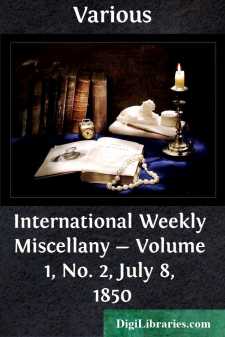Categories
- Antiques & Collectibles 13
- Architecture 36
- Art 48
- Bibles 22
- Biography & Autobiography 813
- Body, Mind & Spirit 142
- Business & Economics 28
- Children's Books 17
- Children's Fiction 14
- Computers 4
- Cooking 94
- Crafts & Hobbies 4
- Drama 346
- Education 46
- Family & Relationships 57
- Fiction 11829
- Games 19
- Gardening 17
- Health & Fitness 34
- History 1377
- House & Home 1
- Humor 147
- Juvenile Fiction 1873
- Juvenile Nonfiction 202
- Language Arts & Disciplines 88
- Law 16
- Literary Collections 686
- Literary Criticism 179
- Mathematics 13
- Medical 41
- Music 40
- Nature 179
- Non-Classifiable 1768
- Performing Arts 7
- Periodicals 1453
- Philosophy 64
- Photography 2
- Poetry 896
- Political Science 203
- Psychology 42
- Reference 154
- Religion 513
- Science 126
- Self-Help 84
- Social Science 81
- Sports & Recreation 34
- Study Aids 3
- Technology & Engineering 59
- Transportation 23
- Travel 463
- True Crime 29
Our website is made possible by displaying online advertisements to our visitors.
Please consider supporting us by disabling your ad blocker.
International Weekly Miscellany - Volume 1, No. 2, July 8, 1850
by: Various
Categories:
Description:
Excerpt
The LORGNETTE, the cleverest book of its kind (we were about to write, since the days of Addison, but to avoid possible disagreement say)—since IRVING and PAULDING gave us Salmagundi, is still coming before us at agreeable intervals, and will soon be issued in a brace of volumes illustrated by DARLEY. The Author keeps his promises, given in the following paragraphs some time ago:
"It would be very idle to pretend, my dear Fritz, that in printing my letters, I had not some hope of doing the public a trifling service. There are errors which need only to be mentioned, to be frowned upon; and there are virtues, which an approving word, even of a stranger, will encourage. Both of these objects belong to my plan; yet my strictures shall not be personal, or invidious. It will be easy, surely, to carry with me the sympathies of all sensible people, in a little harmless ridicule of the foibles of the day, without citing personal instance; and it will be vastly easier, in such Babylon as ours, to designate a virtue, without naming its possessor! Still, you know me too well, to believe that I shall be frightened out of free, or even caustic remark, by any critique of the papers, or by any dignified frown of the literary coteries of the city.... This LORGNETTE of mine will range very much as my whim directs. In morals, it will aim to be correct; in religion, to be respectful; in literature, modest; in the arts, attentive; in fashion, observing; in society, free; in narrative, to be honest; in advice, to be sound; in satire, to be hearty; and in general character, whatever may be the critical opinions of the small littérateurs, or the hints of fashionable patrons, to be only—itself."
TENNYSON'S NEW POEM.
The popularity of TENNYSON, in this country as well as in England, is greater than that of any other contemporary who writes verses in our language. We by no means agree to the justness of the common apprehension in this case. We think Bryant is a greater poet, and we might refer to others, at home and abroad, whom it delights us more to read. But it is unquestionable that Tennyson is the favorite of the hour, and every new composition of his will therefore be looked for with the most lively interest. His last work, just reprinted by TICKNOR, REED & FIELDS, of Boston, is thus described in the London Spectator of June 8th:
"'IN MEMORIAM.'"Although only these words appear on the title-page of this volume of poetry, it is well known to be from the pen of Alfred Tennyson. It is also known that the inscription
'IN MEMORIAMA.H.H.
OBIIT MDCCCXXXIII.'
refers to Mr. Arthur Hallam, a son of the historian. It may be gleaned from the book, that the deceased was betrothed to a sister of Tennyson, while the friendship on the poet's part has 'passed the love of women.' Feeling, especially in one whose vocation it is to express sentiments, is not, indeed, always to be measured by composition; since the earnest artist turns everything to account, and when his theme is mournful it is his cue to make it as mournful as he can: but when a thought continually mingles with casual observation, or incident of daily life, or larger event that strikes attention, as though the memory of the past were ever coloring the present, and that over a period of seventeen years, it must be regarded as a singular instance of enduring friendship, as it has shown itself in a very singular literary form....












